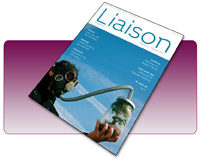For three years running now I have run a session for our postgraduates on writing book reviews. I have written quite a few for the British Journal of Canadian Studies and am about to begin to write my first one for Innovations in Education and Teaching International. When I started to think about how I might approach the session with the postgraduates I was surprised at how little discussion there is on how to write good book reviews, or if indeed we should even spend our time doing them.
As the status of publications go a book review is pretty insignificant. I don’t list them on my CV or on this website. I make it clear to postgraduates that book reviews are not perceived to be as ‘good’ as peer-reviewed journal articles, books, book chapters etc. Over on the Chronicle of Higher Education forums there are those who regard the appearance of book reviews on a CV as ‘padding’, even for more junior members of the academic community. In their view claiming a book review as an actual publication is along the lines of listing blog posts, tweets and postings to internet fora on your CV.
So, why do I do book reviews?
1. Keeping up with Canada. These days all my research is in the field of higher education teaching and learning, but by writing book reviews I can motivate myself to keep my interests in Canadian matters going.
2. The challenge of summarising. Summarising and evaluating a book in 500 words is a challenge. I have just submitted a review of Quebec and the Heritage of Franco-America, which contains six essays plus an introduction from one of the editors. In this case I have just about managed to address each chapter individually, but books with 10, 15 or more contributors are much harder to write about in 500 words.
3. A sense of providing a service to the academic community. I would like to think people actually read my reviews and find them helpful, but in all honesty no-one has ever mentioned anything I’ve written in a book review.
4. To increase the size of my book collection! I like having lots of books. My wife is less keen though. We have two big bookcases in our front room and many of the shelves contain two rows of books. My Canadian book collection takes up a couple of shelves and it is nice (for me) to add to this section.
If you are teaching a session on book my materials are available for open sharing in Humbox.
Other sources I have found online include:
Roger Shiner (adapted from Susan Swan), ‘Nine ways of looking at a critic’, Toronto Globe and Mail 30th November 1996. E23)
How to write a book review (Los Angeles Valley College)









